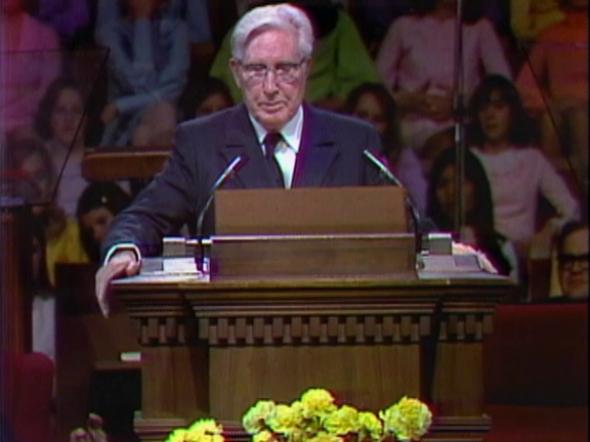
I pass on a little story that, among other places, I’ve seen in D. Michael Quinn’s The Mormon Hierarchy: Extensions of Power. I mention that particular source in order to win some credibility for the story. For some, Dr. Quinn (perhaps alongside the late Grant Palmer) is the only honest historian of Mormonism — at least, he was, until he published his The Mormon Hierarchy: Wealth & Corporate Power in 2017 — and his works have attained something like canonical status with them.
Having served for nearly a decade as a counselor in the First Presidency (from the time I was consciously aware of such things until nearly my graduation from high school in California, the term The First Presidency flatly meant, in my young mind, the venerable trio of David O. McKay, Hugh B. Brown, and N. Eldon Tanner), the Canadian Hugh B. Brown was released in 1970 and resumed his position in the Quorum of the Twelve Apostles. He was somewhat depressed at his release from the Presidency (typically, once called to that high position, men had remained there for the duration of their lives; there have been further exceptions since to that onetime “rule”), as well as in physical decline, and he sought consolation from the Lord. He had an experience that he related to his nephew:
“He said it was not a vision, but the Lord appeared to him, very informal, the same as I was sitting talking to him. The Lord said, ‘You have had some difficult times in your life.’ Uncle Hugh responded, ‘Yes, and your life was more difficult than any of us have had.’ In the conversation Uncle Hugh asked when he would be finished here, and the Lord said, ‘I don’t know and I wouldn’t tell you if I did.’ Then He said, ‘Remain faithful to the end, and everything will be all right.’”
A pretty good rule for all of us, of course.
Hugh B. Brown is sometimes invoked since his passing by liberal (and left-fringe) Latter-day Saints as something of a patron saint for doubters and dissidents, as if he were one of them who in some mysterious way worked his way into being First Counselor in the First Presidency of the Church.
“Only error needs to fear freedom of expression,” he said in a 1958 speech at Brigham Young University. “The ancients put that thought in the form of a prayer. They said, ‘From the cowardice that shrinks from new truth, from the laziness that is content with half truth, from the arrogance that thinks it has all truth — O God of truth deliver us.'”
But it should never be forgotten that he was a believer who claimed revelation.
Posted from Paris, France















